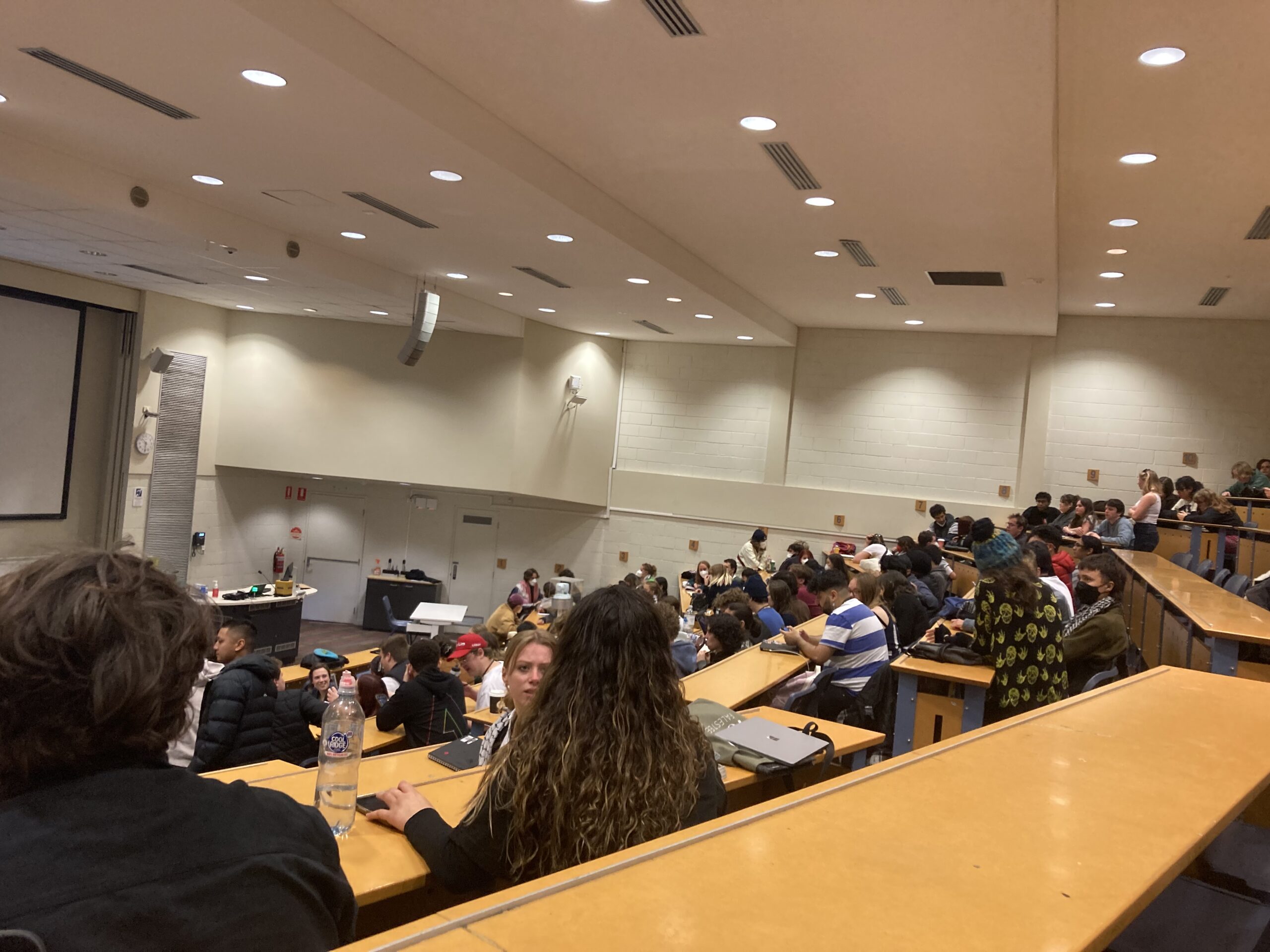On Day 2 of Edcon, we started with the plenary from the welfare office where we discussed issues such as the food insecurity among students, accommodation and student life on campuses more broadly.
The first question posed to the panel was, ‘how can our councils support students to address food insecurity?’ Melbourne’s University stated they have shared their insecurities directly with the university which has enabled them to give out free groceries to students in need as well as basic necessities such as deodorant, toothpaste and more. Further, they are able to offer free brunches and breakfasts every single day and deals for meals for under $10.
UTS mentioned that they are receiving opposition from management who are trying to get rid of programs already in place around the university. UTS has an program called Bluebird brekkie for free breakfasts on certain days; Nightowl noodles for dinner services; and, a pantry where students who register can get five free items of food. They mentioned how over 1000 signatures were brought to management to showcase the demand of the project and that people rely on it. The Socialist Alternative group interrupted to say that the Labor government is the root of the problem.
UTS also mentioned that it took a while for them to set up the pantry. They now get food donations from a local church and stated that there are grants to apply for the cost-of-living which allowed them to get a new freezer for their pantry. UTS also noted that most of their frequenters are international students, often lining up outside the pantry an hour before open, which highlights how international students really are affected by the cost-of-living crisis and the lack of funds and support they receive from universities.
A student said, “change will come by challenging the labour government.”
Panellist from UTS responded, “while we wait for the revolution to come, people are suffering now.”
ACT was asked what role they’ve played in supporting student welfare as a union. They discussed how on-campus accommodation currently houses a large portion of the university’s students and stated that students are complaining about the bad living conditions they are faced with. Students are finding it difficult to reach the end of the month as rent increases steadily and scholarships decrease simultaneously.
ACT said there was a survey that circulated on the standard of living on campus and got overwhelmingly bad results. As a direct result, accommodations have since increased their standards as they prep rooms more efficiently, including air conditioning and more basic commodities previously missing from on-campus accommodations.
When asked how they go about prioritising welfare initiatives, both UTS and Melbourne University said they have been dipping into their reserves more than usual but both agreed it was worthwhile prioritising the services that best benefit their students to also show their universities the high demand for those services.
Melbourne University also highlighted how their university shut down their food pantry on campus that was available to all students because “too many people were accessing it,” making it restrictive and less accessible during the ongoing cost-of-living crisis.
UTS spoke of the lack of eligibility for a concession card for international students for 20 years now and the disappointment in having a petition and campaign fail to have this changed. They stated that international students were grateful nonetheless for their efforts but were further discouraged after the new visa fees that came out with the federal budget this year.
When asked what their units have done to support them, UTS continued by saying that they have been hosting day trips for international students which have been sold out every time. International students have collectively felt the lack of support which has instead been focused more directly on domestic students. UTS said that taking initiative and organising fun activities has had positive outcomes for the wellbeing of international students.
Melbourne University emphasised that they aim to “take care of every single aspect for international students” by advocating for international students any chance they get. Melbourne’s goal is to help international students financially a little bit more and mentioned the time when “two years ago we managed to get $4000 for every international student coming to Australia…that’s what we really try to aim for.” They stated that every university in Australia signed the petition initially put forward by Swinburne University to which a week later they got confirmation on its passing – it went on to fund at least 600 international students.
It was also mentioned by every panellist at some point that there has been a $20 billion surplus in the budget that could have been put towards students and there would still be enough for free transport. “It is a choice to rule for the rich rather than to help the students.”




